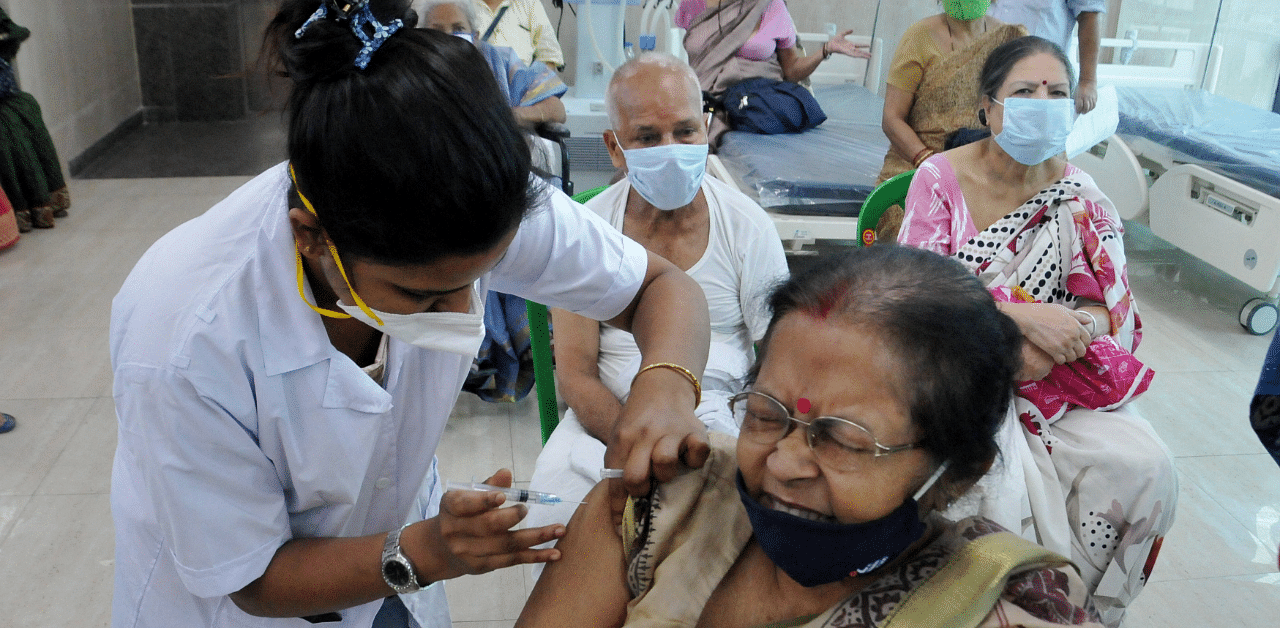
While calls for booster jabs are growing over concerns of the Omicron Covid variant, their durability, impact and ability to quash the disease remain unknown, according to a report.
Due to the presence of more mutations, Omicron is suspected to undermine vaccine performance. Although, it is yet to be proved, vaccine makers are developing variant-specific boosters, Nature reported.
Immunisations with available shots today could help ward off a surge of Omicron infections, health experts believe, but the question remains whether the need for boosters continue indefinitely.
Before Omicron, it was thought that the immune-system players -- memory B and T cells -- were holding up well, and two doses of a Covid-19 vaccine would maintain long-term protection against severe disease and death.
But the new variant could change the immunological picture, the researchers said.
"Unfortunately, we're still living in uncertainty," immunologist Ali Ellebedy at the Washington University School of Medicine in St. Louis, US, was quoted as saying.
Further, the researchers said that though the extra vaccine shots may help bend the pandemic's curve, it cannot bring an end to it.
Real-world data from Israel and the UK indicated that Pfizer's booster dose significantly lowers risk of infection from SARS-CoV-2 and getting severe diseases.
The booster doses also effectively reduced the number of daily cases in Israel, the report said.
Based on national estimates from the US, the researchers found that a broad booster push could decrease the virus's reproduction number, Rt, which is the number of people an individual with Covid-19 can go on to infect, by around 30 per cent.
"It's not going to stop a raging epidemic," Marm Kilpatrick at the University of California, Santa Cruz, was quoted as saying.
"But it definitely can take an epidemic that's growing at a very uncomfortable rate for lots of people, and make that into either a shrinking epidemic or a much, much less bad one," Kilpatrick added.
However, the booster campaigns in high-income nations may be slowing efforts to vaccinate the rest of the world, the report said.
Manufacturers worldwide are currently producing an estimated 1.5 billion doses of Covid-19 vaccine per month.
But, "the problem is that most of those doses are concentrated in certain parts of the world and are not getting to where they're needed most," Andrea Taylor, a health-policy researcher at the Duke Global Health Institute in Durham, North Carolina, was quoted as saying.
And until the world addresses issues such as delivery logistics, equitable prioritisation and healthcare infrastructure, the gap between vaccine haves and have-nots will only widen as rich nations hoard booster doses for themselves, the report added.
Check out DH's latest videos